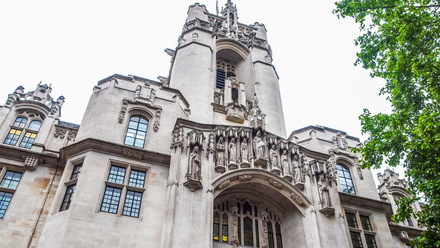House of Lords debate on the Public Services Committee’s ‘Lost in Translation’ report
ITI was pleased to tune into the House of Lords debate on the Public Services Committee’s report 'Lost in translation? Interpreting services in the courts' on Tuesday 9 September 2025.
Baroness Morris of Yardley opened the session by highlighting the importance of interpreting in the courts and acknowledging the complexity of the service. She paid tribute to the “hugely committed and talented” interpreters, pointing out that criticisms raised during the debate and in the report published in March 2025 were of the system and not of them.
The Committee proceeded to present their key concerns resulting from the inquiry and their recommendations aimed at addressing many of the existing shortcomings. Evidence provided by interpreters was referenced throughout the debate, with anecdotes painting a vivid picture of the “appalling” treatment of court interpreters. Examples included interpreters not being reimbursed for prebooked travel tickets when court cases were cancelled and having to queue with the public before entering a hearing rather than using the staff entrance. It was encouraging to hear the calls for interpreters to be respected as professionals and be given the facilities they need to play their pivotal role in the justice system.
Remuneration was also high on the agenda, with Baroness Coussins, Honorary President at the Chartered Institute of Linguists, presenting a powerful contrast between hourly rates for interpreters and lawyers and expressing her concern about interpreters reluctantly leaving the profession every month.
At the end of the debate, Baroness Levitt, Parliamentary Under-Secretary to the Ministry of Justice (MoJ), responded to many of the concerns raised by the Committee in turn, including interpreter availability, quality assurance, complaints, qualifications, AI and innovation.
The Baroness agreed that language must never be a barrier to justice and that interpreters are critical to the proper functioning of the courts. She hinted at further, practical improvements, including clearer data and enhanced welfare provisions for interpreters, to be delivered through the new MoJ contract, which would enter into force in October 2026 for a term of four years. In her conclusion, Baroness Morris of Yardley compared that contract to “a brick wall in front of us”, but ITI shares her hope that we will see fundamental improvements implemented through its terms. We will continue to engage with and support our colleagues in the Professional Interpreters for Justice (PI4J) network.


